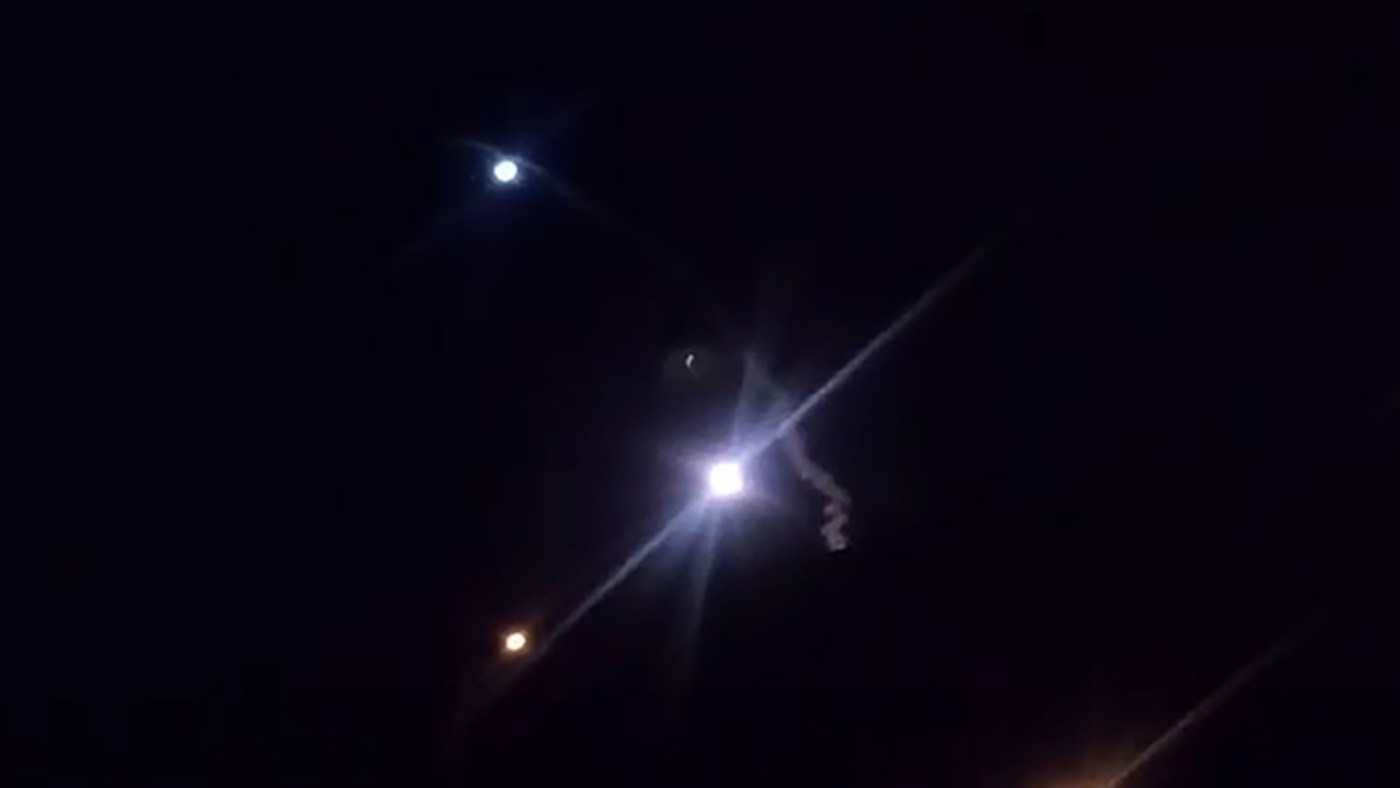Iran missiles target US troops: what we know so far
Tehran has launched more than a dozen missiles at air bases in Iraq

A free daily email with the biggest news stories of the day – and the best features from TheWeek.com
You are now subscribed
Your newsletter sign-up was successful
Iran has launched more than a dozen missiles at US and coalition military sites in Iraq in retaliation for the killing of top general Qasem Soleimani.
Tehran fired the 22 short-range missiles from Iranian territories at about 1.30am local time (10.30pm GMT) on Wednesday, just hours after the burial of Soleimani.
US officials have confirmed that there was no American casulties, while the Iraqi joint military command also said that there were no Iraqi deaths as a result of the attack, CNN reports.
The Week
Escape your echo chamber. Get the facts behind the news, plus analysis from multiple perspectives.

Sign up for The Week's Free Newsletters
From our morning news briefing to a weekly Good News Newsletter, get the best of The Week delivered directly to your inbox.
From our morning news briefing to a weekly Good News Newsletter, get the best of The Week delivered directly to your inbox.
The missile launches were a “major retaliation” by the regime, Fox News says.
According to the Pentagon, two sites were attacked, in Irbil and Al Asad, west Baghdad. A White House spokesperson added: “The president has been briefed and is monitoring the situation closely and consulting with his national security team.”
Donald Trump has tweeted that “All is well!” The US president added: “Assessment of casualties & damages taking place now. So far, so good! We have the most powerful and well equipped military anywhere in the world, by far! I will be making a statement tomorrow morning.”
In a statement following the attack, Iran’s Revolutionary Guard said: “We are warning all American allies, who gave their bases to its terrorist army, that any territory that is the starting point of aggressive acts against Iran will be targeted.”
A free daily email with the biggest news stories of the day – and the best features from TheWeek.com
It added: “To the Great Satan... we warn that if you repeat your wickedness or take any additional movements or make additional aggression, we will respond with more painful and crushing responses.”
Iran’s Supreme Leader Ayatollah Khamenei described the strike as “a slap in the face” for the US, adding: “When it comes to confrontation, military action of this kind is not enough. What is important is that the corrupt presence of the United States should come to an end.”
However, the Iranian foreign minister, Mohammad Javad Zarif, later seemed to be attempting to play down the tension, saying: “We do not seek escalation or war.”
Yashar Ali – an American journalist of Iranian descent - tweeted that it was “naïve” to think the attack heralded the end of the row. He added: “If you think Iran lobbing missiles over the border is the kind of revenge they ultimately have in mind, you’re wrong.”
According to CNN, “the crisis the world feared when President Donald Trump was elected president is upon us”.
In a post on Twitter, Thomas Juneau, an assistant professor and Iran expert at the University of Ottawa, said: “Iran assesses Trump does not want to get bogged down in a large scale war in the Middle East, and that this gives it more margin to manoeuvre.
“Needless to say, this is a HUGE gamble given how unpredictable Trump is.”
–––––––––––––––––––––––––––––––For a round-up of the most important stories from around the world - and a concise, refreshing and balanced take on the week’s news agenda - try The Week magazine. Start your trial subscription today –––––––––––––––––––––––––––––––
-
 The President’s Cake: ‘sweet tragedy’ about a little girl on a baking mission in Iraq
The President’s Cake: ‘sweet tragedy’ about a little girl on a baking mission in IraqThe Week Recommends Charming debut from Hasan Hadi is filled with ‘vivid characters’
-
 Kia EV4: a ‘terrifically comfy’ electric car
Kia EV4: a ‘terrifically comfy’ electric carThe Week Recommends The family-friendly vehicle has ‘plush seats’ and generous space
-
 Bonfire of the Murdochs: an ‘utterly gripping’ book
Bonfire of the Murdochs: an ‘utterly gripping’ bookThe Week Recommends Gabriel Sherman examines Rupert Murdoch’s ‘war of succession’ over his media empire
-
 Will increasing tensions with Iran boil over into war?
Will increasing tensions with Iran boil over into war?Today’s Big Question President Donald Trump has recently been threatening the country
-
 Corruption: The spy sheikh and the president
Corruption: The spy sheikh and the presidentFeature Trump is at the center of another scandal
-
 Rubio boosts Orbán ahead of Hungary election
Rubio boosts Orbán ahead of Hungary electionSpeed Read Far-right nationalist Prime Minister Viktor Orbán is facing a tough re-election fight after many years in power
-
 Greenland’s capital becomes ground zero for the country’s diplomatic straits
Greenland’s capital becomes ground zero for the country’s diplomatic straitsIN THE SPOTLIGHT A flurry of new consular activity in Nuuk shows how important Greenland has become to Europeans’ anxiety about American imperialism
-
 Epstein files topple law CEO, roil UK government
Epstein files topple law CEO, roil UK governmentSpeed Read Peter Mandelson, Britain’s former ambassador to the US, is caught up in the scandal
-
 Iran and US prepare to meet after skirmishes
Iran and US prepare to meet after skirmishesSpeed Read The incident comes amid heightened tensions in the Middle East
-
 Which way will Trump go on Iran?
Which way will Trump go on Iran?Today’s Big Question Diplomatic talks set to be held in Turkey on Friday, but failure to reach an agreement could have ‘terrible’ global ramifications
-
 Israel retrieves final hostage’s body from Gaza
Israel retrieves final hostage’s body from GazaSpeed Read The 24-year-old police officer was killed during the initial Hamas attack